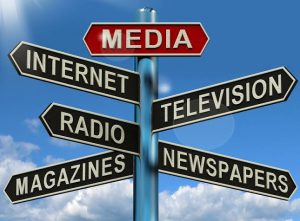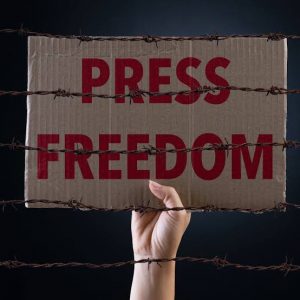- Have any questions?
- [email protected]
The Role Of Free Press In Achieving Good Governance In Nigeria

Nigeria’s Public Debt Portfolio For Q4, 2020
23 March 2021
Ymonitor Issue 084: BOOMING
23 March 2021The Press is recognisably the fourth estate of the realm and the watchdog of the people. Beyond the functions of information dissemination, the press has the duty to hold the government accountable for their actions and inactions. This is established in Section 22 of the Nigerian Constitution, where it says: “The Press, Radio, Television and other agencies of mass media shall at all times be free to uphold the fundamental objectives contained in this chapter and uphold the responsibility and accountability of the government to the people”.

The presence of the press is unarguably vital in any country and the state of its governance, as the Press has a significant influence on the government and its people.
However, the tales of a free press are beginning to wane a bit as ownership, influence among other factors, are beginning to hinder the whole point of “A FREE PRESS”. The press constitutionally should work without interference or hindrance from external factors while carrying out journalistic duties and upholding truth, objectivity, integrity and accountability.

Due to certain factors here and there in our democratic society, press freedom in Nigeria is a bit hindered. Influence, ownership of the media, government interference, are a few factors that affect the free press notion.

However, let us examine what the role of Free Press is in achieving Good Governance in Nigeria. Earlier in the piece, it was said that the Press has a responsibility to hold the Government accountable for their actions and inactions. A corrupt and dishonest government can be fished out by the Press and made to be accountable to its people. A free press works to highlight the people’s plights and bring it to the Government’s notice, not just that, ensuring that changes are effected, adjustments are made, and responsibility takes its course.
Good governance embodies these qualities;
It is participatory
It is accountable
It is transparent
It is responsive
It is consensus-oriented
It is effective and efficient
It upholds the rule of law
It is equitable and inclusive
So, how does the press come in to ensure that these qualities are evident in the governing of the state? A strong and independent media will investigate, criticise and monitor the government and its actions. The public administration’s policies can be assessed and critiqued also. Favourable and unfavourable policies can be brought to people’s attention. Giving the people a voice in the decision-making matters and not just shutting it in with “those at the top”.
The media bridges the gap between a people and its government, so everything that happens in between is the media’s responsibilities. To ensure that the government can hear the people and the people can listen to the government. What is good governance without that solid foundation in place?
Human Rights: The press helps to shed light on the inalienable Human Rights of the people, enabling them to get familiar with the rights they have and helping them fight for those rights in most cases.
Ensures a Better Participatory Experience: People (Masses and elites), with the help of the media, can get access to administrative information and participate in decision-making processes. The Press provides a means to have more comprehensive access to information on what’s happening and how to be a part of what’s happening. For instance, teaching, enlightening and also informing people about what they need to know with regards to electoral processes, elections and e-governance.
Reducing Poverty and the exclusion and marginalisation of the poor and the less privileged: According to UNESCO, “The eradication of poverty is indeed a vital condition for global stability, democracy and peace. As long as the poor are excluded from participation in global growth, sustainable peace and development will remain out of reach”. This is an excellent pointer to the importance of reducing or eradicating poverty, and the Press is one great means to get that done. Supplying the poor with adequate and reliable information that they can use to make better and informed decisions is one way. Fighting the battle for good governance in itself helps to improve living conditions.
Another way further, the media can get the government as well as private individuals to be accountable and to channel resources properly to empower people and lift them out of poverty one person at a time.
These are things that work with a system that allows the media to work! The media contributes to, influences and ensures good governance and the betterment of lives. This will even be more effective with a system that grants the Freedom of the Press.
